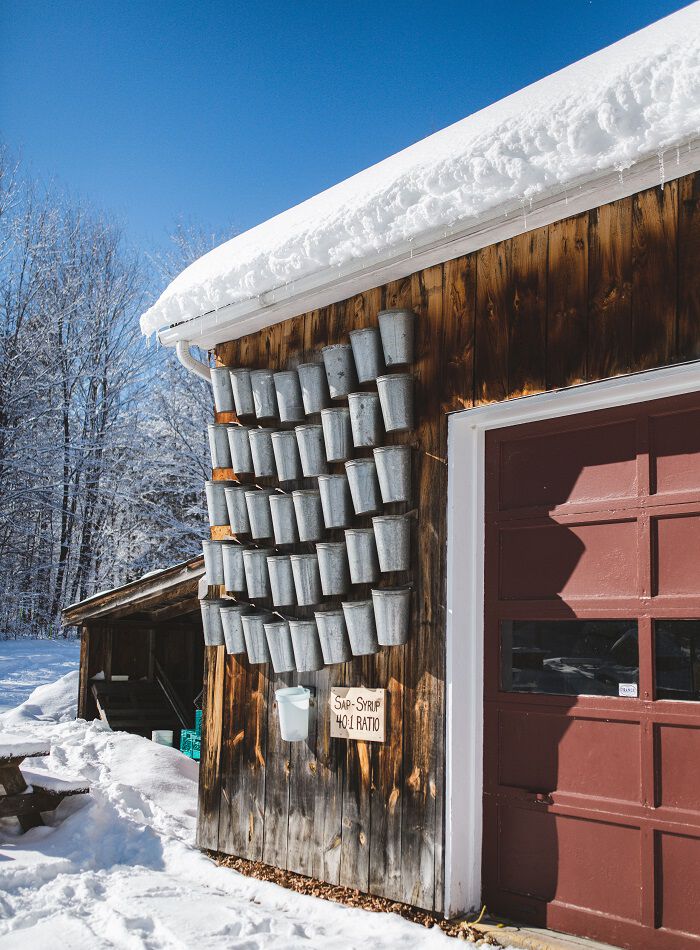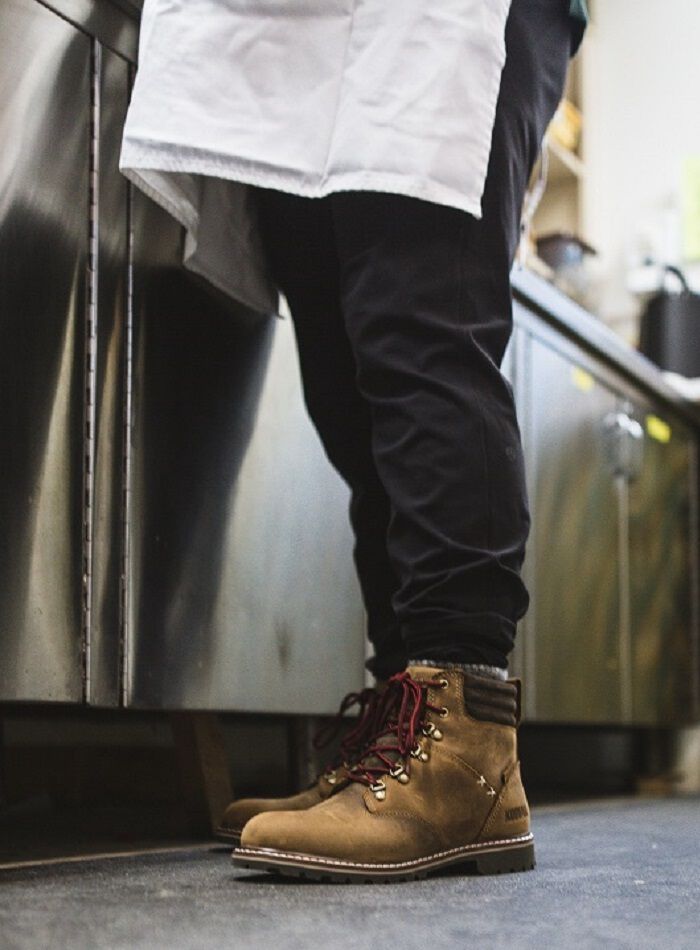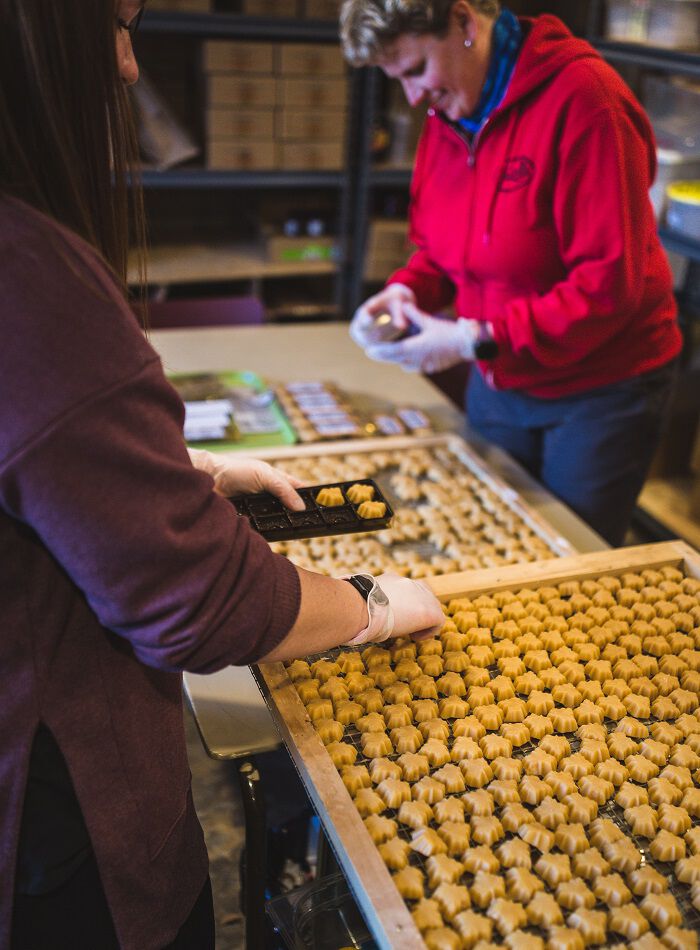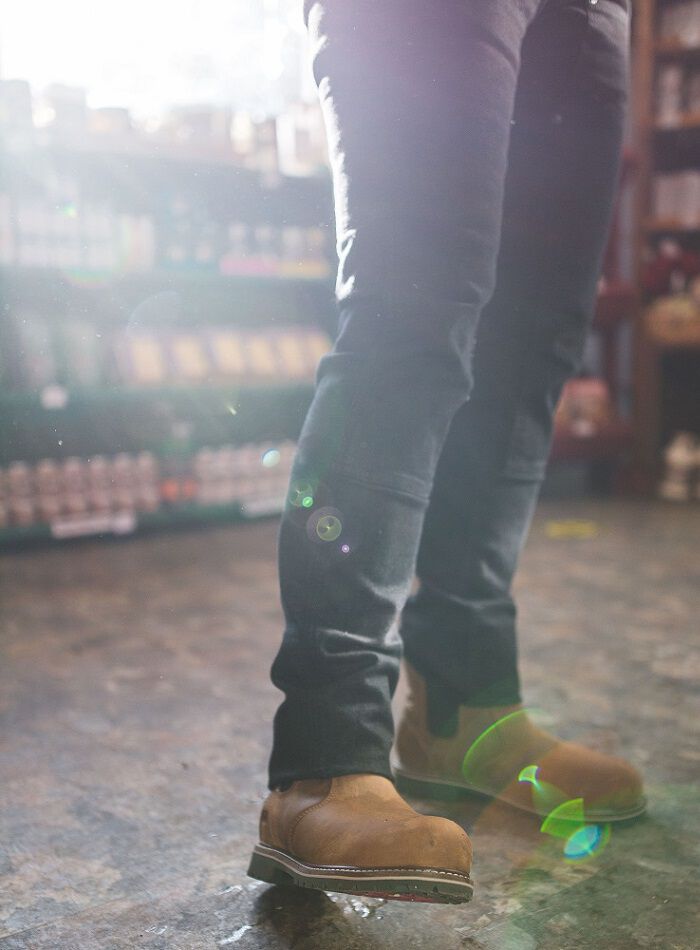Built for What Matters:
A tradition at source
Becoming a parent and watching your children grow older also means accepting that one day they will have to leave to make a life elsewhere. Every parent wants to see their offspring flourish, but it is a luxury to be able to keep their son or daughter close to them.
Some parents have that chance. Their child decides to settle not too far away or to come back to the area after a few years, so they can meet up for a dinner or two every week.
And there are others who are even luckier. Parents who have the opportunity to have their children and sometimes even their grandchildren as co-workers, as well as having them just around the corner.
Shirley Fulton Deugo is one of those privileged people. She is the eldest at Fulton's, a sugar bush that has been in the family for seven generations and has become a true institution in Eastern Ontario. Shirley is the last representative of the fourth generation. Her son and two daughters (the fifth generation) are slowly taking over by training the sixth generation. The seventh generation was just born.
Each spring, Shirley has the pleasure of working with her three children and nine grandchildren.
A little bit of history
The first generation – A survival element
In 1840, John Fulton and his two brothers left Scotland and came to Ontario. When they arrived, the Canadian government gave them 100 acres of land less than an hour away from Ottawa. "It was a tough time. All that mattered was raising your family and putting food on the table," Shirley says. The First Nations introduced the Fulton brothers to the art of maple syrup. "At the time, they made it for themselves. There was no white sugar back then, only honey that you could find with the bees in the forest. Maple Syrup became an essential for them. It allowed them to consume a few more calories and gain vitamins, minerals and antioxidants from the syrup," she says.
The second generation – A precious commodity
The second generation quickly realized the value of the product. "They made more maple syrup, they made more maple sugar and they would use it as currency, instead of money. At the general store, they traded it for seeds and tools. It was still small at the time, but it went beyond family use." says the eldest of Fulton's.
The third generation – The essence of Fulton's
Leonard Fulton is Shirley's father. "He's really the one who expanded the business. He was a visionary," she says. By this time, the farm and sugar bush were well established. Regardless, Leonard decided to tap even more maple trees, bringing the total to 6,300 taps.
"My father was a very social man. He found farming a little too solitary." That’s when he had an idea: adding a restaurant to the sugar bush. "He had been shipping to western Canada and now he wanted city folks to come out and visit the sugar bush. At the time, this addition didn't make sense to many and all his neighbours told him he was crazy. It was over an hour away from Ottawa then and there was no highway." In 1969, he started a 12-seat restaurant. "People came the first year and it's been like that ever since. Every spring, more came. The pancake house restaurant can now seat 120."
Leonard Fulton was a landmark in the history of Fulton's, as Shirley testifies, "My father was the one that gave an identity to Fulton's. He set the bar to what Fulton’s was to be. A place where customers could come and feel like friends. After a few years, the customers became sort of an extension of the family. And it was my dad that created that feeling."
The Fourth Generation – Beyond Syrup
Since Shirley took over Fulton's, she's been focusing on increasing supply. "We've added variety to the menu, a lot of new products such as maple candy, maple mustard and barbecue sauce and even activities on site. I think most importantly we've been able to maintain the feeling that your family and our family become one when you visit Fulton's."
When family becomes an example
One of the things that sets a family business apart is the willingness of all generations to learn. "Here, there’s no feeling that the older people don’t know what they are talking about. I feel honored that my grandchildren are so interested in my story. They come to me and want me to teach them. It's a shame because nowadays, we don't take the time to learn from the past anymore. We have lost the treasure and value of learning from the older generations. In so many other cultures, the elders are the ones that are the most valuable; in our culture, we often set them aside."
For Shirley, knowledge is passed through passion. "The children have to see that you like it. Because if you don’t like it, why would they want to learn? I remember one year with my husband, we made all our maple syrup in seven days and nights. We brought a mattress into the pancake house and took turns because the kids weren't old enough to help us out yet. It may sound like a lot, but because we love it, it’s really hard to call it work. We had been waiting all year for the sap to flow."
"You have to throw some fun too. My dad always found a way to make the work fun."
"You have to throw some fun too. My dad always found a way to make the work fun," Shirley tells us. At Fulton's, there are many ways of keeping people motivated. "While the kids are tapping trees, we often make a list of all the food they like and fill their pockets so they can eat when they need to. If we pass by a Dairy Queen, we make sure to bring some back for everyone. We also play pranks, especially on April Fool's Day. You may come across fake hands in the freezer, coin rolls wrapped in layers and layers of duct tape or a car full of popcorn. It's really the fun and silliness that breaks the tension when you're in the middle of a busy season."
Leaving is also a part of learning. "Kids need to leave, whether it's for university, college or just travel. Otherwise, the grass will always be greener on the other side. They need to see if Fulton's is the place they want to be. It allows them to grow, learn other skills and makes them more grateful for what they have at home."
Finally, another good thing about working at Fulton's is the range of skills you can develop: "You don't just learn how to make syrup. You also learn marketing, finance, customer service, you develop a work ethic … Everything you need to know in life, you can learn here."
Honoring what surrounds us
Another tradition that continues at Fulton's is caring for the land. "I don't know how to describe it. We just love this place. We'll never do anything to harm it." There are several sacred rules in the family. "We never do any clear cut. When trees fall or die, it's important to leave them there. They give back to the land and provide shelter for animals and birds. If trees are cut, it is only because they are not healthy or to make room for the new ones to grow. It is always done in a careful and selective way. That’s the cycle of life at Fulton's."
When you listen to Shirley, you realize that the Fulton’s are very attached to their 400 acres of land. "We have two special trees here: the Grandpa Tree and the Grandma Tree. They're close to the Sugar Camp. It's been like that since I was a little girl. The ice storm of 1998 caused a lot of damage to them and another storm hit them this year. We hired a tree trimmer to remove the damaged branches, but both trees have been in severe decline ever since. The other day, Scott (her son) came to me and said that the Grandpa Tree needed to come down this year and he wasn't sure if he could do it. For us, it's like loved ones. It's like talking about a beloved dog."
Like most knowledge at Fulton's, respect for the land is not instilled with words, but rather passed on. "It's not something we teach. It's more something the kids absorb when they hear us talk. It leaves an impression on them. It’s important to protect and care for what's around us."
Fulton's extended family
When Shirley's father decided to add a restaurant to the business in 1969, little did he know the connection he would end up making with the community. Without that decision, few would have discovered what Fulton's is all about. "We pride ourselves on having a closeness with the people. There aren't many who are that lucky. A farmer never talks to the person buying a quart of milk. Here, we can chat, introduce ourselves, teach them more about how our products are made and they can see all the work that goes into it."
"We pride ourselves on having a closeness with the people. There aren't many who are that lucky."
Over time, real connections have developed. "We have generations of customers who come here: there are grandparents, their children and their grandchildren. The grandparents identify with me, their kids know my kids and their grandkids play with my grandkids. We have families who have been coming here for 40 years. It has become a tradition for them. Every Easter weekend, they show up with 20 or 30 family members. What more can you ask for? It has really become a loving relationship between these families and ours. And there are newcomers every year."
Shirley has been collecting visitor stories for years. She doesn't have to think long before telling us one. "Yesterday I had a new visitor. He called me before he arrived. I knew he was Irish because of his name (O'Leary). He was probably in his seventies, he was a very jolly looking man. When he finally arrived, I said to him that he was welcomed here, but that he was entering Scottish territory. We both had the greatest laugh. Then we talked and talked and talked. He called me today to let me know that he had a great time yesterday and would probably be back on Friday. I was really touched that he took the time to call me. And this all happened at the farm store, not even at the restaurant."
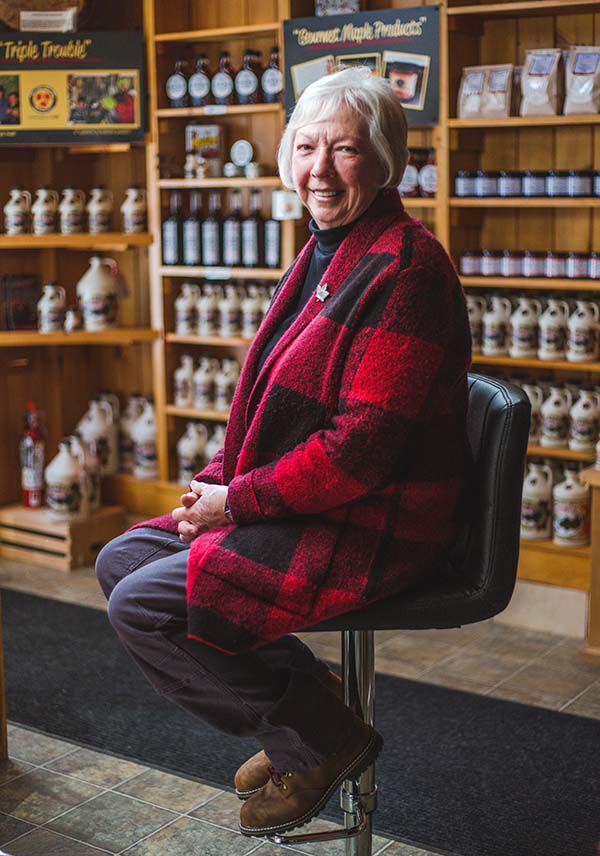
When the trees are no longer flowing
Once spring is over and the tanks are cleaned, Fulton's doesn't close. "After a short break, the managers meet on a Monday morning and we ask ourselves : Ok, what’s next? We reflect back on the season with each manager's notes and customer feedback. We talk about how to improve the business, our sales, the online store. Recently we made the jump to the Shopify platform. We're even thinking about Christmas already."
There's one thing that sets Fulton's apart from other family businesses. "We're not afraid of change. There are a lot of family farms that want to keep things the way they are. When the son or daughter comes into the picture, sometimes the parent refuses to change anything. We're always looking for the next opportunity. That comes from my dad. We've always learned not to fear change."
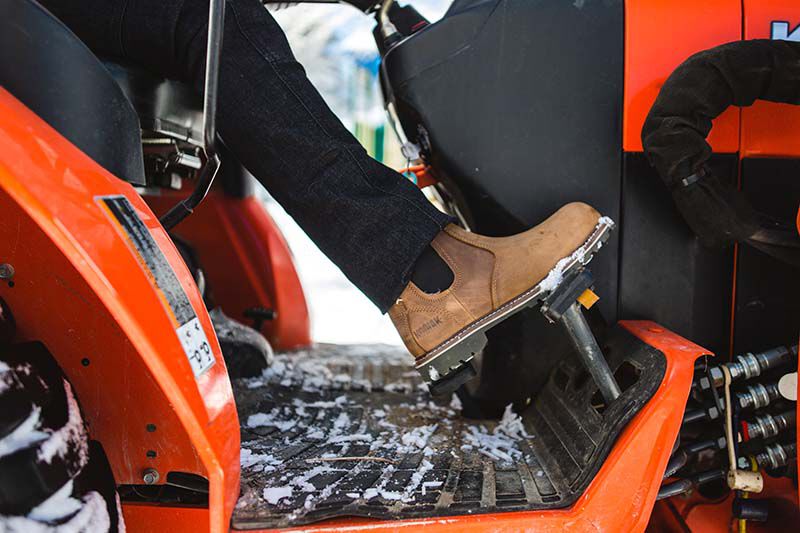

A generational exchange
Since 1840, several traditions have been created and passed down at Fulton's: caring for the land, valuing the knowledge of elders, being where you want to be, welcoming visitors as family and not being afraid of change.
By working with and learning from their families, younger generations have the opportunity to access a pool of knowledge and a worldview that is quite different from what they could have acquired elsewhere.
With this background, the fifth and sixth generation (and in time, the 7th generation) will have everything they need to make Fulton's flourish in their own way and to ensure that these valuable assets are passed onto future generations.
